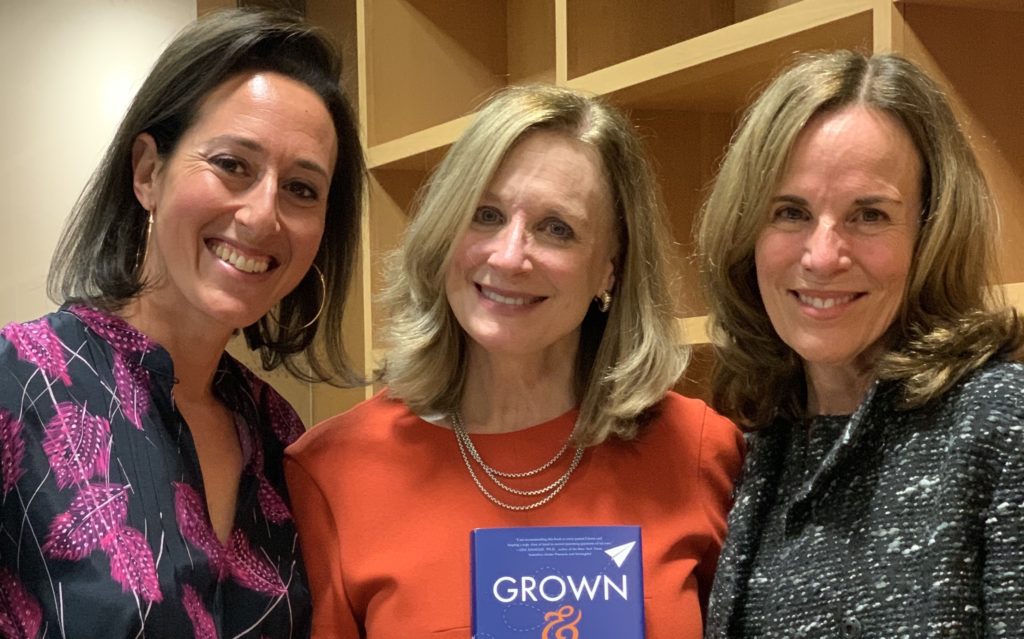A couple of weeks ago on a rainy Thursday night, I stood in a room heaving with parents of teens and young adult children, seeking wisdom from the authors of Grown & Flown, Lisa Heffernan and Mary Dell Harrington. The room was filled with those of us trying do our best on the challenging journey of parenting our children into adulthood, and who better to teach us than the founders of GrownandFlown.com. Their website and social media juggernaut has become the number one resource for parents of teens and college students, reaching millions of parents every month.
The audience that night was eager to engage in the central issue in Grown & Flown, which in the authors’ words boils down to this struggle: “Parents often walk a tightrope between doing too much and too little for our kids. We fear not giving our kids every opportunity to reach their potential and we fear giving them too much will destroy that potential.” The book focuses on addressing this tension in both a tactical and more meta ways by employing the advice of experts, parents in the Grown and Flown community, teens themselves, as well as Lisa and Mary Dell’s own reflections. The heart of the book lies in encouraging parents not to abandon connectivity with our children even while continuing to foster their growing independence.
In addition to the foundational information provided in Grown & Flown through data and excerpts from interviews with experts in the teen and college-age space, several chapters in the book are uber-practical guides to parenting. These chapters walk parents step by step through some of the most challenging experiences in parenting kids of this age: finding the right college, broken-hearted teens, college-day drop off, worries about alcohol and so on. Lisa and Mary Dell recognize that with these challenges, sometimes the devil is actually in the details and having a plan or a script for these difficult moments can be very important.
There are a few central messages that Lisa and Mary Dell repeat throughout the book that are both reassuring in their positivity and in their emotional honesty. One, parenting teens and college age kids is lonely work and we need to find communities for ourselves on this journey. Two, that we are doing a better job than we give ourselves credit for and in many ways, are doing better than our own parents did. Three, our kids do better when they are connected to us so therefore, fostering connection with our kids in these years does not necessarily equate to being helicopter parents.
Ultimately, reading Grown & Flown feels as if one is learning at the knee of an older friend who provides sage advice, emotional support and some life hacks along the way. It acknowledges the worry that we endure in every stage of parenting, names the grief that many of will feel when we separate from our beloved children and offers hope that sending them off into adulthood does not have to mean saying goodbye forever to a close family.

